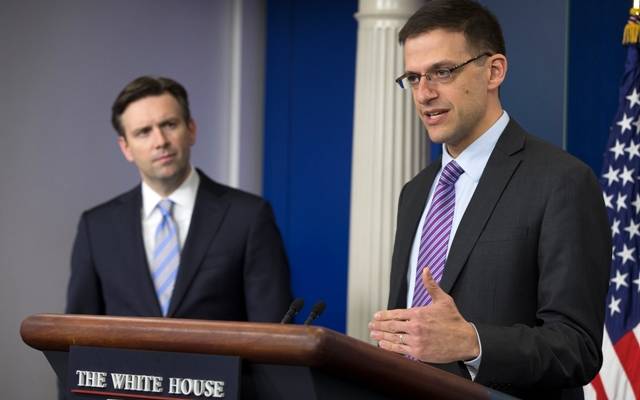
Hezbollah terrorists in Lebanon. (AP/Mohammed Zaatari)
In a statement to the US House Foreign Affairs Committee, Adam Szubin, the US Treasury Department’s acting under-secretary for terrorism and financial intelligence, claimed that the Hezbollah terror organization is in deep financial trouble. But is this true?
A US Treasury official says that the Lebanon-based Hezbollah terror group is in its “worst financial shape in decades.”
Adam Szubin, the US Treasury Department’s acting under-secretary for terrorism and financial intelligence, who was also the chief architect of US sanctions on Iran, told lawmakers from the US House Foreign Affairs Committee, “After many years of sanctions targeting Hezbollah, today the group is in its worst financial shape in decades. And I can assure you that, alongside our international partners, we are working hard to put them out of business.”
Last December, the US government passed the Hezbollah International Financing Prevention Act, which aims to sanction international financial institutions that knowingly facilitate Hezbollah’s activities.
The US bill seeks to “prevent Hezbollah’s global logistics and financial network from operating in order to curtail funding of its domestic and international activities,” and to “utilize diplomatic, legislative, and executive avenues to combat Hezbollah’s criminal activities in order to block that organization’s ability to fund its global terrorist activities.”
The powerful Banque du Liban (BDL), Lebanon’s central bank, has begun to shut down accounts linked to Hezbollah, and Riad Salameh, governor of Lebanon’s central bank, said that he will comply with the International Financing Prevention Act.
Szubin also said the Iran nuclear deal has had “no impact on our efforts” to target Iranian funding and weapons transfers for Hezbollah, one of Iran’s terror proxies.
“In late January, we sanctioned a major Hezbollah financial support network, which was laundering criminal proceeds to support Hezbollah’s terrorism and destabilizing activity,” Szubin said. “And just last month, we published new sanctions regulations to implement the Hezbollah International Financing Prevention Act of 2015—a law which gives us yet more tools in our campaign to destroy Hezbollah’s financial networks.”
The new bill has reportedly already begun to affect Hezbollah officials in Lebanon, who are forced to revert to covert methods of using cash instead.
By: JNS.org and United with Israel Staff
